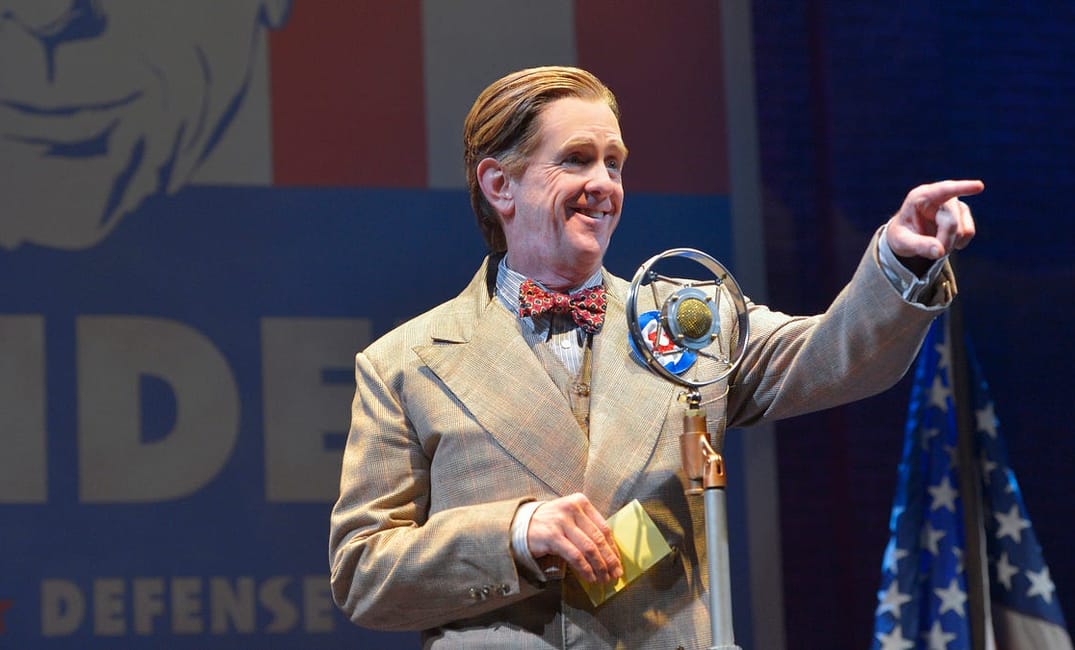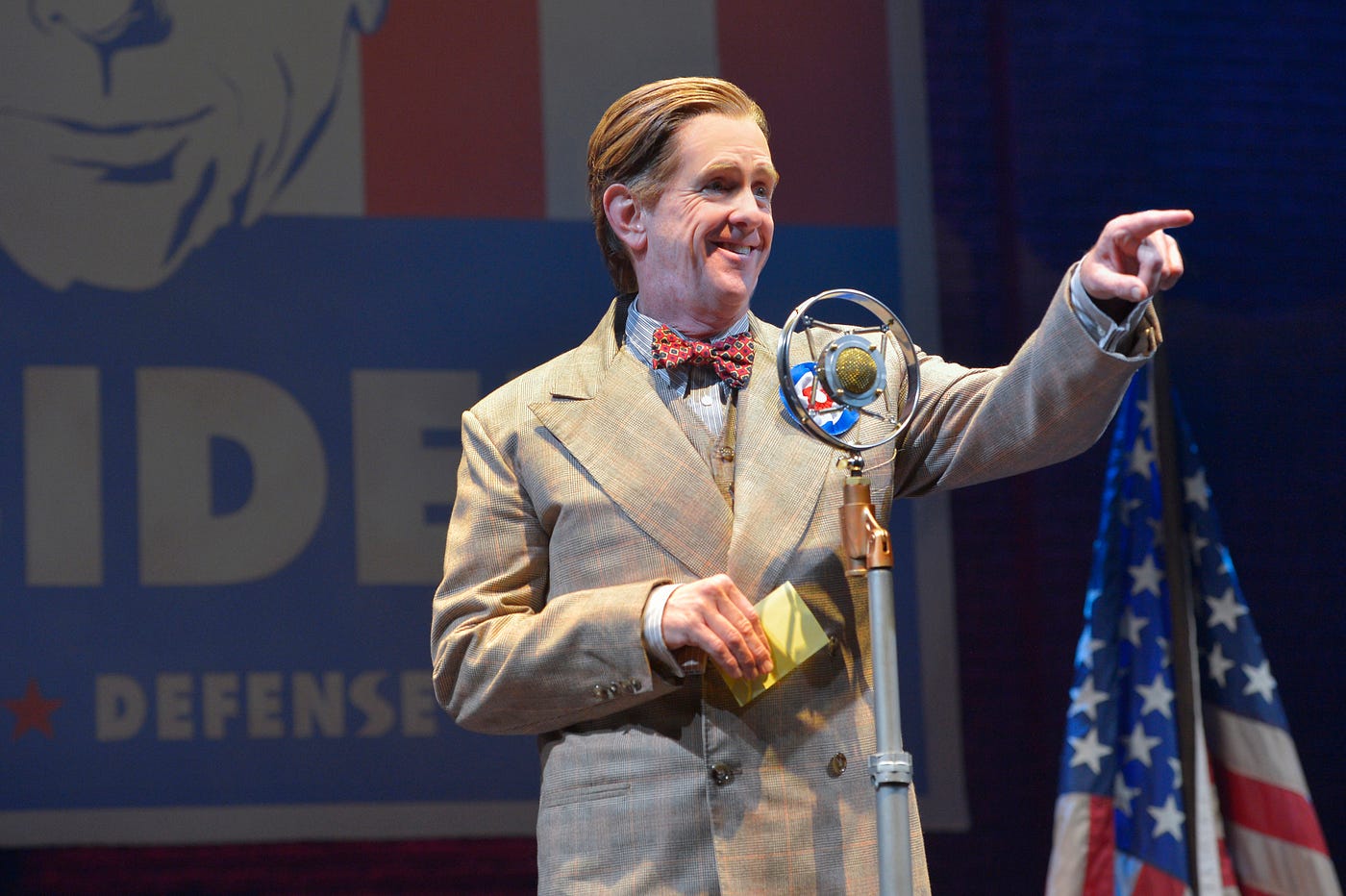
‘Tis the season for pumpkin spice, rainy days and — as if you needed reminding — the 2016 election. Every election year brings an uptick in dynamic art being produced about said election, with Saturday Night Live as the gold standard. (Recall that Sarah Palin never actually said she could see Russia from her house — Tina Fey did — but no one remembers that.)
In our home region, many Bay Area theater companies have been producing political theater for the stage that runs the gamut from wry to eye opening. Here’s what’s on stage this fall:
Berkeley Rep’s “It Can’t Happen Here”
As you might have guessed from the provocative title, “It Can’t Happen Here” is a reference to Nazism. Sinclair Lewis originally wrote this play in 1935 as a parable about how fascism might come to the US (after it had already arrived in Germany).
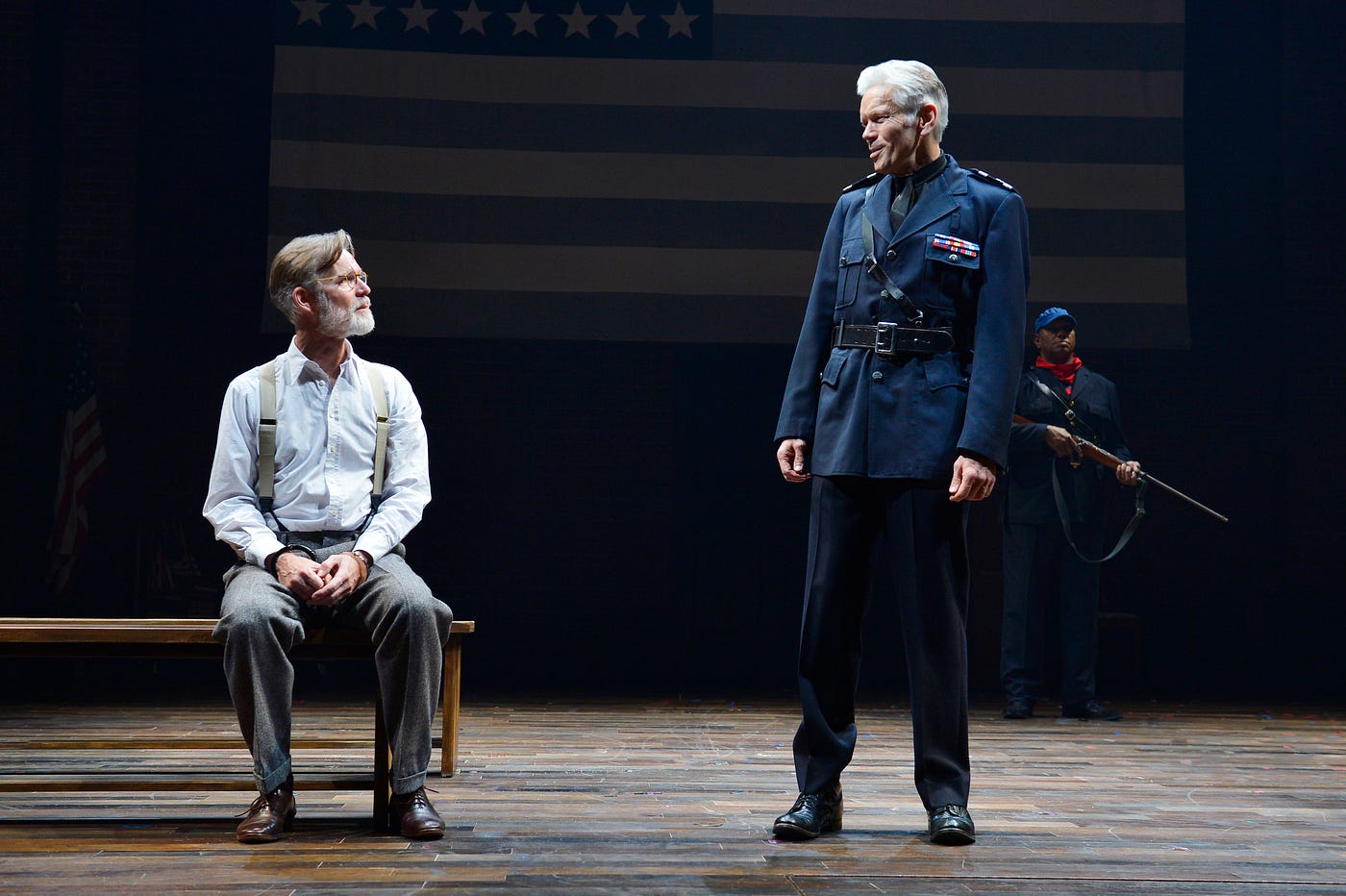
This production, adapted for the stage by Berkeley Rep artistic director Tony Taccone and Bennett S. Cohen, is compelling for how it shows the American descent into dystopia — rather than thrust us in it from the beginning. Indeed, so many contemporary dystopias — from 1984 to Hunger Games to Margaret Atwood’s Oryx and Crake—begin in the middle of the apocalypse, without showing how we got from point A to point B.
In contrast, in It Can’t Happen Here, you get to see the disenfranchised working man, a day laborer named Shad (Scott Coopwood), quit his job serving upper-middle-class protagonist Doremus (Tom Nelis) and link up with the American equivalent of the SS. The play is compelling for its depth (and a bit triggering, especially for those of us who’ve been victim of police violence), but it falls a bit short in its steadfast depiction of pacifism and a free press as the only acceptable form of salvation for liberal democracy.
It Can’t Happen Here plays through November 6 at Berkeley Rep.
Hoodslam (or, the Case for Wrestling as Theater)
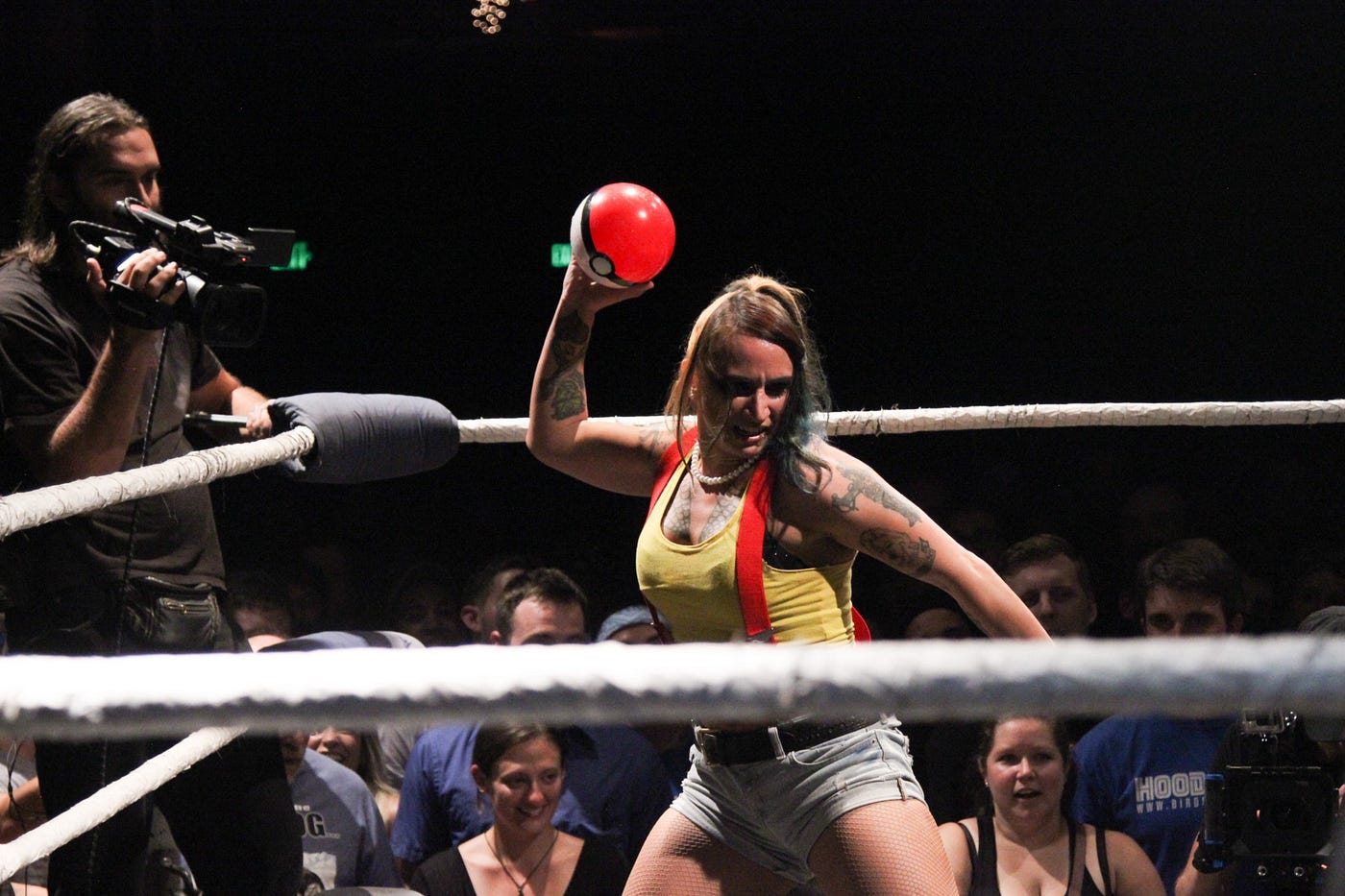
OK, Hoodslam may not be political theater in the overt sense — to most spectators, it’s more like an absurdist variant on pro wrestling that’s heavy on stoner humor, magical realism and Super Nintendo references. Yet if you’ve ever watched wrestling, you know that it’s always political to some extent: for instance, the rash of villainous Soviet wrestlers in the 1980s at the end of the Cold War was no coincidence. Wrestling, like other forms of theater, shines a light on our own cultural and political situation.
So why is it political? Well, like WWE, Hoodslam is serialized and tells a story that changes from show to show — as characters shift from being villains or heroes (“heels” and “faces,” in wrestling-speak). What makes Hoodslam so political is the explicit manner in which the heels and faces are constructed. During last year’s “Femmed Out: Drag Me To Hell” show—in which most of the regular wrestlers performed as drag version of themselves — the wrestlers who refused to feminize themselves became heels, subject to furious boos from the audience (and vitriol from the MC). Likewise, wrestler characters who express transphobic or sexist attitudes found themselves becoming heels; and it’s clear from watching the show that there is a fair bit of foresight in the way that the scripts were written.
Right around the time that Trump’s “grab them by the pussy” comments were coming to light, Hoodslam featured a match between wrestler Christina Von Eerie and Joey Ryan, a male wrestler whose character archetype was that of a “sleazeball.” Whether this was intentional or a coincidence, it certainly felt appropriate for our political age.
Hoodslam goes down on the first Friday of every month (and sometimes more often) at the Oakland Metro Operahouse in Jack London Square. Generally, doors open at 8:00 p.m., and the show starts at 9:00 p.m. Tickets are $20.
“South of Market: The Musical”
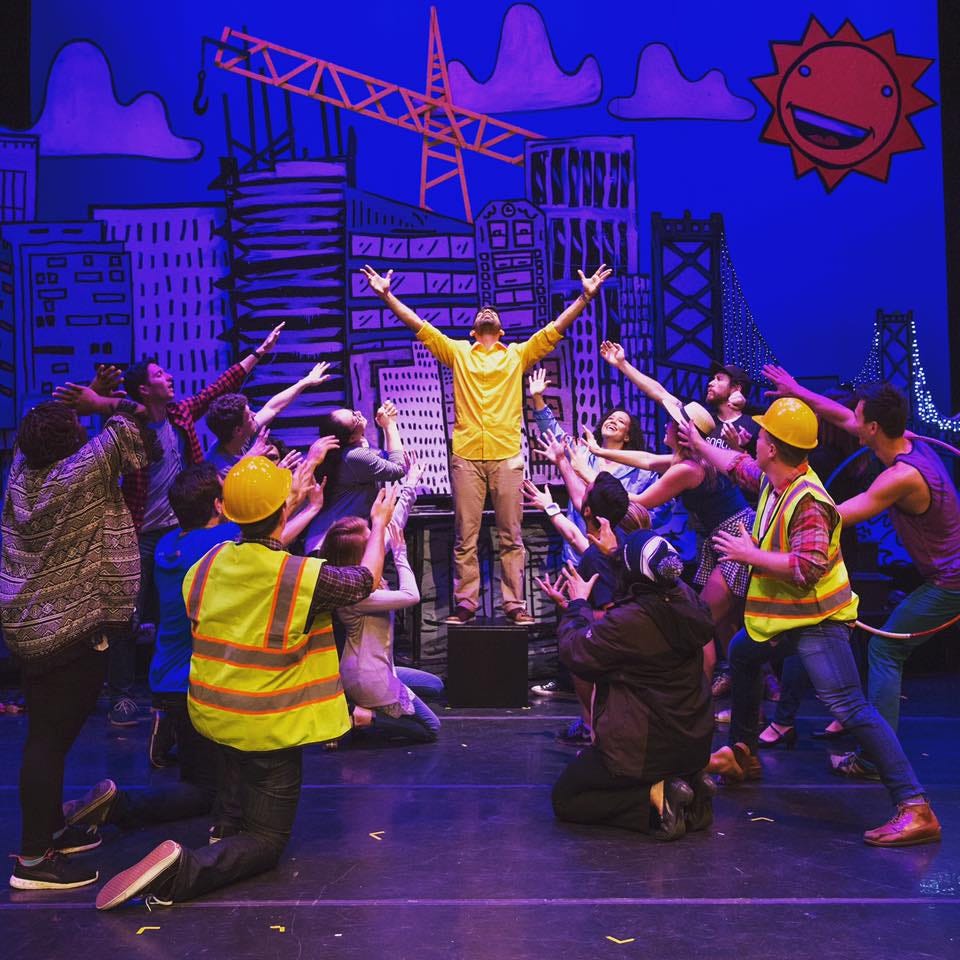
If you missed the astonishingly brief run of South of Market: The Musical at Z Space, don’t fret: this tech-parody musical is being billed as an “alpha” version, which, after audience feedback, will hopefully resurface in 2017 as a “beta” version (presumably after a couple rounds of VC funding).
In terms of wokeness, South of Market: The Musical ranks lower on this list. A send-up of tech culture (and by extension, San Francisco culture), the show follows the lives of a group of start-up founders and their inner circle as they interact with San Francisco archetypes (e.g., an Uber driver, Truffle Guy, a homeless woman, a barista). As far as satire goes, it’s pretty spare: there are a few well-placed zingers about Silicon Valley’s sexism and a couple of election jokes (about Trump and, later, Russia meddling in the election). But despite being billed as accessible to non-techies like me, I found many of the jokes to be too tech specific. For instance, a comment about Facebook engineers not being “real” engineers went over my head, and the casual depiction of a homeless thief felt hollow in light of the real-life pain and horror of being homeless in San Francisco. I found myself recasting Cirrus Wood’s words about tech satire:
[Although South of Market] is meant to be sincerely insincere, [I] can’t help but feel that I’ve been invited to the stable master’s roast at the Montenegrin dressage club. I’m doing my best to follow the audience and find the beats where I’m supposed to laugh, but I just don’t speak Serbo-Croatian.
The music of the show is well composed, in the vein of Avenue Q, The Book of Mormon or another Robert Lopez show; the libretto is funny, if occasionally schmaltzy. The actors move in a vaudevillian vein, in that you can’t help but laugh at the way they amble, dance and break the fourth wall. Anyone who works in tech and doesn’t mind a musical view from the ivory tower will likely be in stitches, as much of the audience was.
South of Market: The Musical is in low-power mode until the “beta” version. Find more info here.
Crowded Fire Theater’s “The Shipment”
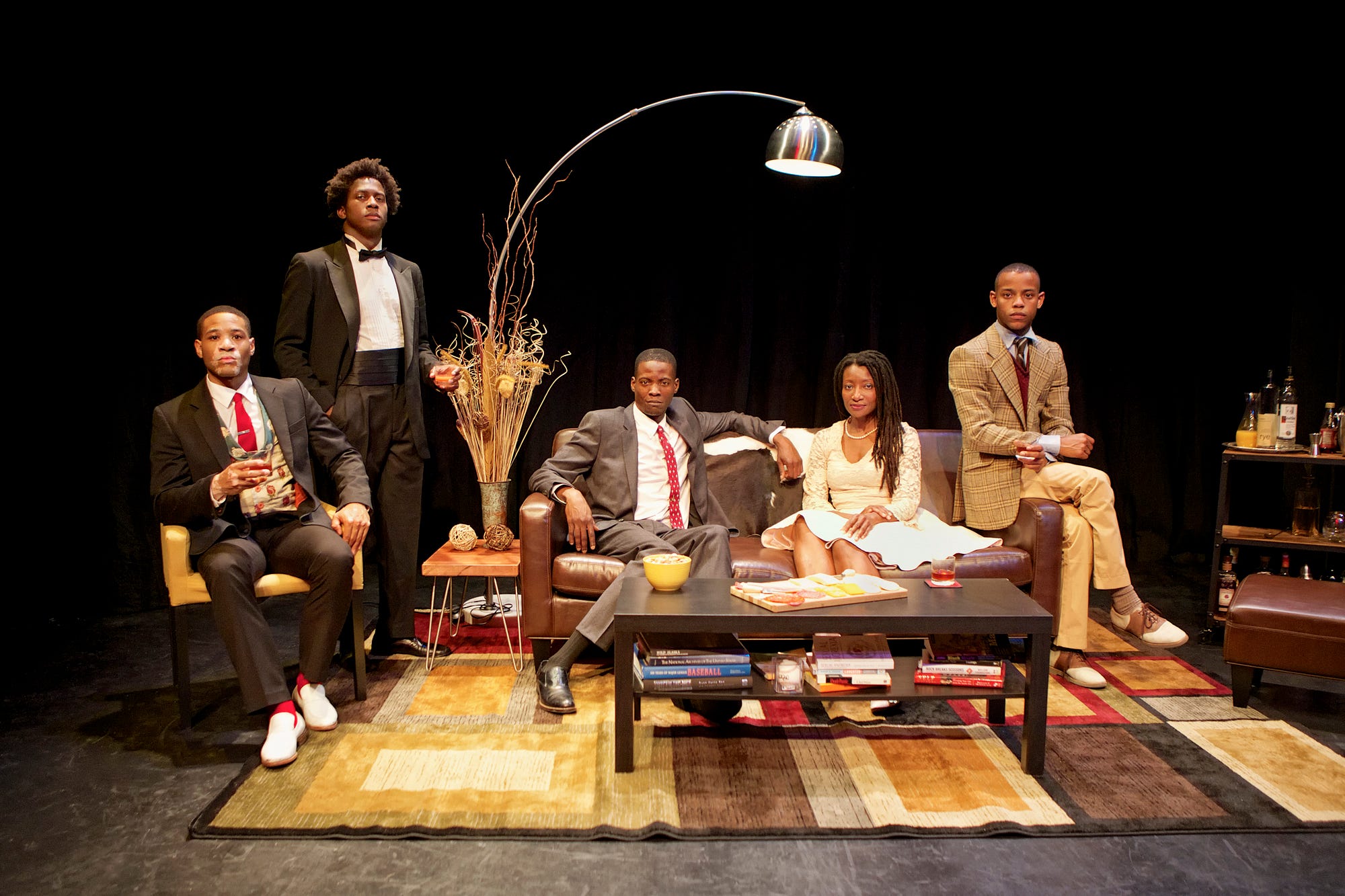
Far and away the most experimental show on this list, Young Jean Lee’s The Shipment is a diffracted parable specifically about whiteness. The show is broken into three big acts and two smaller acts that only tangentially relate, yet all of them deconstruct the way that a white lens perceives blackness. Without giving too much away, I’ll just say that one act is an extended stand-up set starring a comedian who plays a more blue version of Chris Rock, satirizing how black performers play to white audiences; then, there’s a very stereotyped vignette about a young black boy aspiring to be a rapper, which the actors perform in the stilted movement of a video-game avatar.
I can’t reveal the last act without giving away the play, so I just won’t. That said, The Shipment is at times hilarious and uncomfortable, and exceedingly relevant in this political cycle. Even though it is now closed after a far-too-short run at the Crowded Fire Theatre, playwright Young Jean Lee is a rising star in the theater world right now, so expect to see more of her productions in the Bay Area in the next couple of years.
Want more irreverent election coverage? Read about the 2016 election translated into emoji, an undercover journalist with the Trump campaign at a Round Table Pizza party or what San Francisco’s Trump supporters believe.



